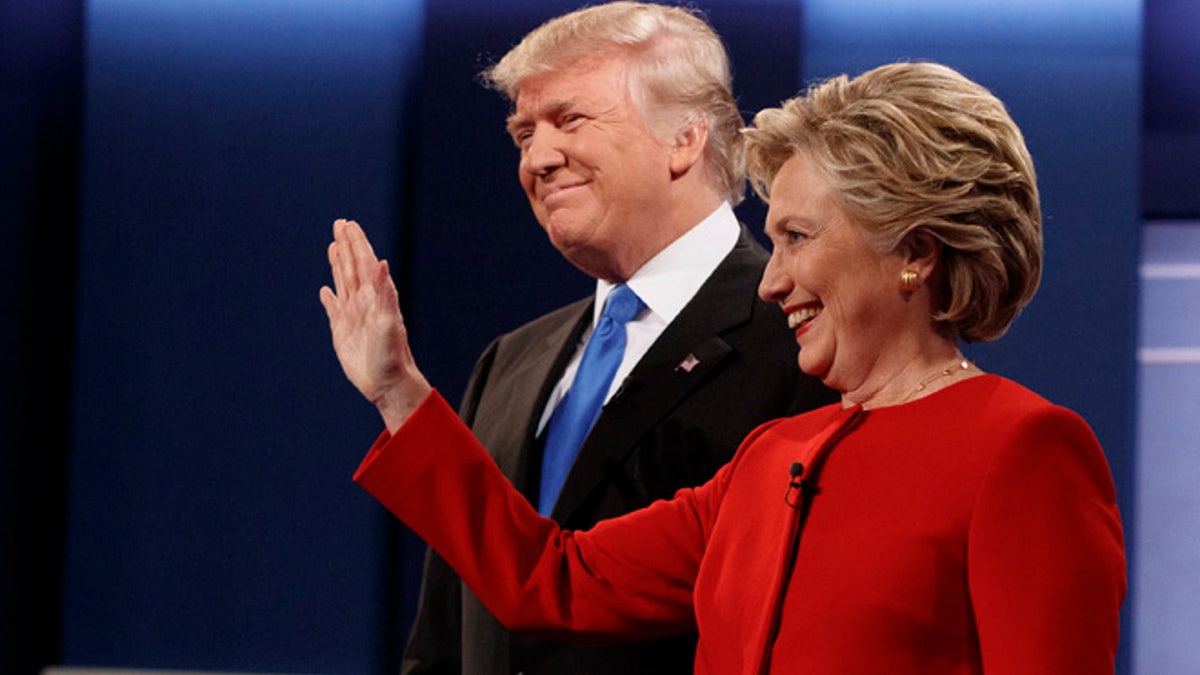
AP (Donald Trump and Hillary Clinton)
Can money buy an election? Hillary Clinton better hope so. Thanks to Director Comey’s bombshell announcement that the FBI is reopening the investigation into Clinton’s mishandling of classified information, a close race will almost surely tighten further. Hillary goes into the home stretch under pressure, with lagging enthusiasm and falling “favorables”, but with this to fall back on: piles of cash.
Comey’s announcement may cause a shift in the polls, but the more important impact could be on turnout. By reminding Americans of what they most dislike about Hillary Clinton – the scandals that trail her like a sulfurous cloud – the renewed FBI probe could cause tepid Hillary supporters to stay home. At the same time, it arguably reenergizes the Trump camp, whose followers have been depressed by sinking polls and the media’s suggestion that the race was already decided.
Throughout the campaign, the Clinton camp has worried that the so-called Obama coalition would simply not show up; surrogates including President and Mrs. Obama have repeatedly urged blacks, in particular, to vote. There are signs that those fears were well founded. In North Carolina, for example, black voting is lagging 2012 levels. Similarly, a brand new poll shows Clinton’s advantage over Millenials shrinking.
Elsewhere, the New York Times reports Clinton has a slim edge in several toss-up states, and acknowledges that she has a “large organizational advantage.” That advantage is the result of a sturdy years-long Democratic program dedicated to voter turnout, and also the Trump camp’s refusal to invest in the nuts-and-bolts efforts so critical to national campaigns.
Hillary’s ground game, fueled by her constant schmoozing with billionaire donors, could make the difference in this election. For all that she rails at the evils of “dark money” on the campaign trail, Hillary and her SuperPacs have raised over one billion dollars in this election cycle, compared to only $512 million for Trump. In the first three weeks of October, Clinton kept up a relentless fund-raising program, pulling in $52 million compared to Trump’s $29 million. Even after a heavy bout of advertising, Clinton’s campaign ended the period with $62 million left in the kitty while Trump had only $16 million. So strapped is his team that Trump has announced that he is writing a ten million dollar check to his campaign; he may need it.
Ironically, with Hillary clearly ahead in the polls for the last two weeks, her campaign seemed to have briefly taken its foot off the accelerator. In these closing days, and after months of being outspent 3:1, Trump was set to spend slightly more than his Democrat rival on TV ads for the first time ($14.4 million vs. $13.9 million). Trump’s camp, in a last-ditch effort, is ramping up its TV presence in swing states Florida, North Carolina and Pennsylvania.
By contrast, Clinton’s team for the first time bought more than $100,000 in ads to air in Wisconsin, where most polls show she has a secure lead of five or six points. Her Wisconsin campaign director explained that the ads were designed in part to boost other Democrats like former U.S. Sen. Russ Feingold who is battling incumbent Republican Sen. Ron Johnson. Clinton’s team is also dedicating millions to Indiana and Missouri, where Trump has a comfortable lead but where senate seats are up for grabs. Taking control of the Senate is a high priority for Democrats; Hillary’s campaign apparently thought she could afford to share her wealth.
Even more surprising was the Clinton camp’s modest ad buy in Texas, a red state for generations, but where the Dallas Morning News, for the first time since 1936, endorsed the Democratic candidate. It seemed that Hillary was almost taunting Trump, and hoping he would divert his scarce resources to what is normally a Republican stronghold.
Now the tables are turned, and Hillary will have to refocus her millions on the get-out-the vote push.
There is no question Clinton’s field operation tops Trump’s. In Ohio she has 300 staffers while Trump has fewer than half that number. In Florida, as of September, Trump had one office to Clinton’s 51. These advantages will make or break Clinton now. Clinton’s hefty checking account will fund more phone banks, more flyers and more buses to deliver supporters to the polling places on Election Day.
Will it be enough? Obama adviser David Axelrod said in an interview that Clinton’s ground game and consequent advantage in turning out voters could add 1 to 3 percent in swing states. As we head into the home stretch, with a number of states within the margin of error, that could make the difference. The songwriters could be wrong: maybe money can buy you love.
